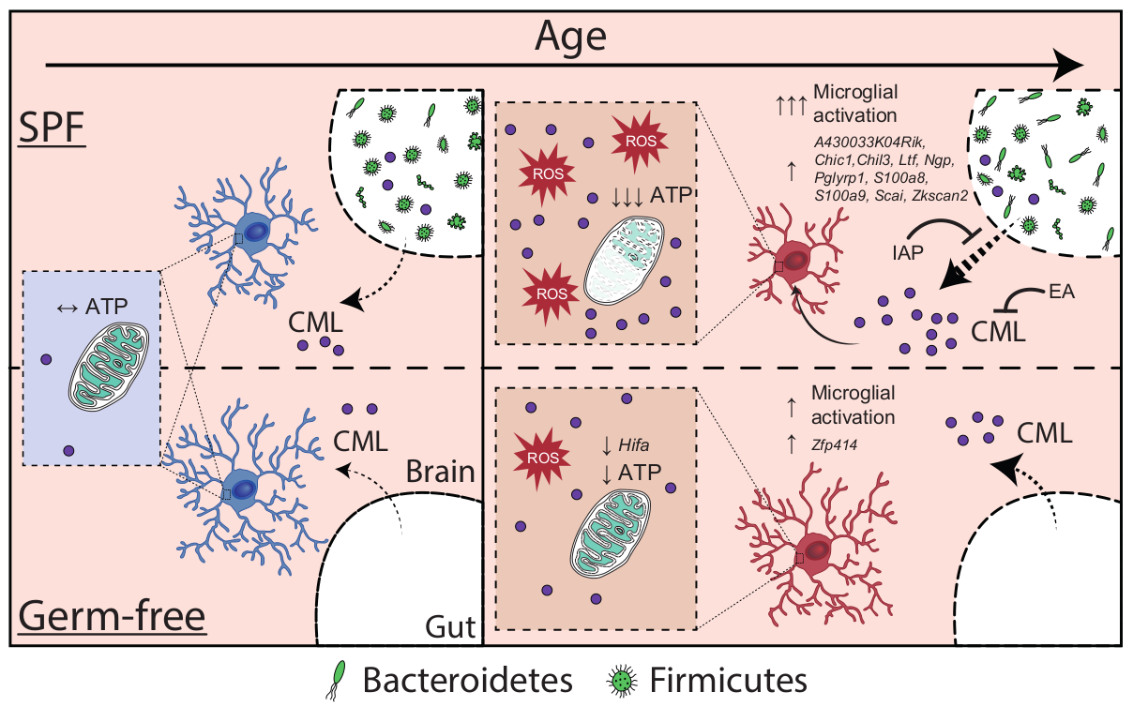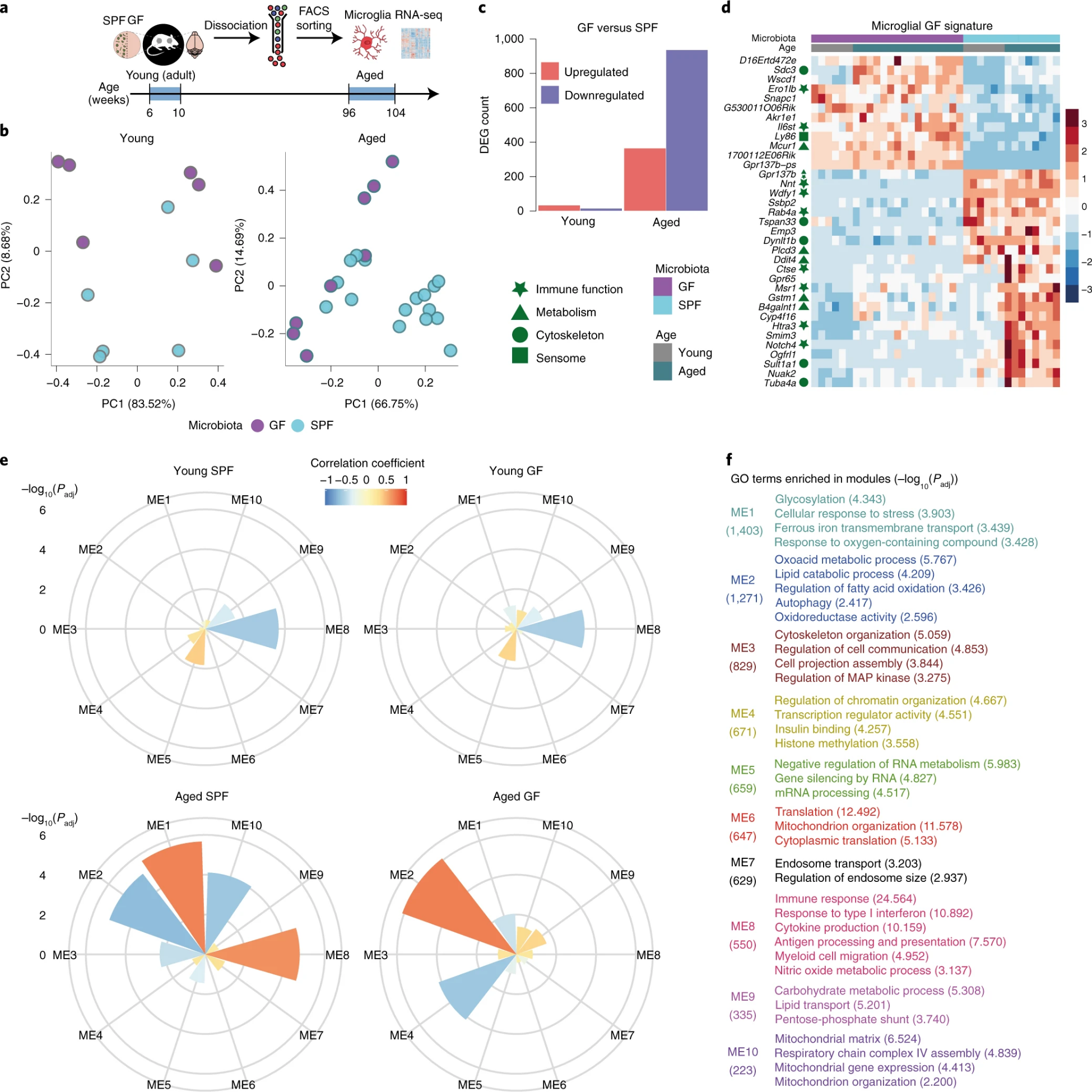New Paper "Gut microbiota drives age-related oxidative stress and mitochondrial damage in microglia via the metabolite N6-carboxymethyllysine"
Our work led by Omar Mossad and Thomas Blank (Institute of Neuropathology, University of Freiburg) has been published last week in Nature Neuroscience: “Gut microbiota drives age-related oxidative stress and mitochondrial damage in microglia via the metabolite N6-carboxymethyllysine”

Abstract
Microglial function declines during aging. The interaction of microglia with the gut microbiota has been well characterized during development and adulthood but not in aging. Here, we compared microglial transcriptomes from young-adult and aged mice housed under germ-free and specific pathogen-free conditions and found that the microbiota influenced aging associated-changes in microglial gene expression. The absence of gut microbiota diminished oxidative stress and ameliorated mitochondrial dysfunction in microglia from the brains of aged mice. Unbiased metabolomic analyses of serum and brain tissue revealed the accumulation of N6-carboxymethyllysine (CML) in the microglia of the aging brain. CML mediated a burst of reactive oxygen species and impeded mitochondrial activity and ATP reservoirs in microglia. We validated the age-dependent rise in CML levels in the sera and brains of humans. Finally, a microbiota-dependent increase in intestinal permeability in aged mice mediated the elevated levels of CML. This study adds insight into how specific features of microglia from aged mice are regulated by the gut microbiota.

